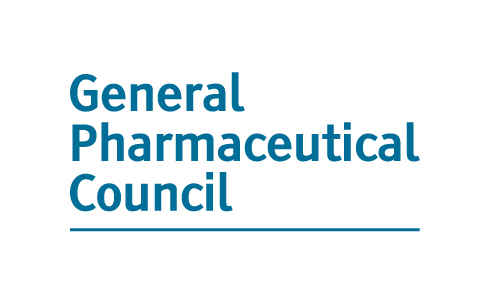Paul Rees – NPA CEO – interview
)
Big Interview NPA Paul Rees: 'Completely wrong, completely immoral, and having an immense impact on contractors'
Paul Rees has been in charge at the NPA for six months. “Very busy, but a lot of fun” he says. But that’s where the fun stops. Who is to blame for the pharmacy funding fiasco? What’s the plan for the protest? And who does he plan to vote for?
Times are tough. Even for Paul Rees, who has a solid record campaigning for difficult things and winning negotiations with challenging opponents.
It’s why we are talking. The NPA chief executive has a day of protest planned for June 20 to highlight the issues pharmacy is facing.
“Contractors are getting in touch, saying ‘thank goodness someone is doing something’ about the situation that they're in,” says Rees. “There’s been an incredible wave of enthusiasm.”
The plan is simple. The day starts with turning off the lights between nine and 11am (the NPA explicitly recommends lights are not turned out in the dispensary).
“It’s the start of the day and we’re hoping we'll start a conversation with patients turning up to pharmacies,” says Rees. “And we're asking teams to wear black for the day, and to black out windows.”
He also wants people to post on social media (hashtag #save our pharmacies) and the NPA has sent out campaign packs for shop floors.
Not everyone is a fan of the day of action plan, with an anxious Pharmacists' Defence Association (PDA) warning of “trips and falls” in the rebellious gloom.
But the NPA has moved quickly to allay concerns. And its plan is already having an impact.
“This week I went to two pharmacies, one in Ipswich, one in Durham, and they all had the campaign materials out. They said people had come into the pharmacy and said, ‘Well, what's this all about?’ shortly followed by: ‘Oh, I didn't realise things were so bad!’”
Independent spirit
The NPA has sought publicity in recent weeks. It stepped up manoeuvres shortly after the AIMp became the IPA and made a bid for NPA members to join them instead. But Rees says increasing visibility was always on the agenda when he took over.
“That's why I was appointed chief executive,” he says. “I've led on lots of national campaigns that have led to changes in government policy, the law or government decisions. The Ramblers Association was established in 1932 to win the right to roam, and when I joined in 1998 they still hadn't won it. I'm proud to say, working with great colleagues, after 18 months of me arriving, we'd won.”
Read more: Welcome to the funeral for community pharmacy - almost
He was also director of policy and communications at the Royal College of GPs, where he co-led a campaign over funding for general practice. “We were calling for 11% of the NHS budget, eventually the government and NHS England gave general practice what we were calling for.”
Steep challenges both. How does the predicament that pharmacy finds itself in measure up? The short answer is much worse.
“Community pharmacy is delivering incredible services in every single community, but over the last 10 years, in real terms, pharmacy has seen its total income reduced by 40%. The mental health trauma that's been caused to contractors is immense.
“People are having to borrow substantial sums of money from relatives. They're having to remortgage their homes just to keep going. They're having to pay for the privilege of delivering NHS care by subsidising the dispensing of medicines. And it's completely wrong, completely immoral. It's having an immense human impact on contractors.”
Read more: No new pharmacy contract until ‘after the election’, says CPE
He says the most shocking case he’s heard involved a contractor who “had to remortgage their home, but they haven’t told their wife yet because they're so concerned about how worried she will be. People are under huge stress.”
All these things and more have sent “three quarters of pharmacies into the red across all four nations. It's a profession in distress. It's a profession that's been let down by politicians. It's a profession that's been let down by the NHS.”
Funding fiasco
He says a pecking order in the NHS puts secondary care doctors first, then GPs, and community pharmacists last. “This campaign is about making sure community pharmacy is treated with respect, and people wake up to the ticking time bomb within the sector.”
But it’s frustratingly unclear is when a new funding deal might defuse it.
One recent NPA publicity stunt delivered an oversize check for £108m to the DH, representing a single month of shortfall in reimbursement for drug dispensing for community pharmacy. How much does Rees fear that bill will have risen by the time a new funding deal arrives?
Read more: NPA delivers £108m invoice to DH as Sunak says he ‘cares deeply’ about sector
“Well, we're hoping that whoever forms the next government, the deal is arrived at very soon. We're in a really serious situation. We want a new deal for community pharmacy, and we want community pharmacy to be properly supported. Pharmacists are treated as second and sometimes third-class citizens. That's wrong. That needs to end.”
So who is to blame for this funding fiasco? Few could have imagined the bumpy ride the world has been on since 2019, but all the more reason to snap a new deal shut. As a seasoned negotiator and concerned stakeholder, what does he think of the job the CPE is doing?
“I think the CPE has a challenging job to do,” he says. “They have to explain to the government what's needed for community pharmacy, and they have to put forward a good case for increasing resourcing. That hasn’t happened and the numbers have been in freefall. But ultimately, it's the government that has to recognise the value of community pharmacy and deliver the funding that's required.”
What’s the plan, Rishi?
As if by magic, a fresh-faced government with an open mind appears likely (Labour are 1-40 favourites at Paddy Power to win the election). But who is Paul Rees voting for, Conservative or Labour?
With diplomatic ease, he says “as you’d expect me to say, the important thing is we want all the parties to take pharmacy seriously. We were really encouraged that the Prime Minister sees delivering Pharmacy First in England as one of his key achievements. We know that Wes Streeting thinks very highly of community pharmacy. The Lib Dems have spoken about how important it is to support community pharmacy.
Read more: C+D election tracker: How will pharmacy vote at the July 4 general election?
“Community pharmacy sees 1.6 million people a day. It should be the front door of healthcare. The challenge is, all politicians see community pharmacy as more and more important, but they're not properly funding it. Politicians and people need to understand just how serious the crisis is.”
For the moment at least, PM Rishi Sunak is the most powerful politician in the land. He’s also famously the son of a pharmacist. What would Rees say to him to help him grasp the seriousness of the situation? And should Labour take control, the same question goes to Keir Starmer and Wes Streeting.
Read more: Wes Streeting: What could a Labour government mean for pharmacy?
“What I'd ask is, during the last during the last 10 years, the number of pharmacies in England has fallen by 1,400. We're now at around 10,400 pharmacies. What is his ideal number?
And what would you expect him to say?
“It's a tricky question because the policies being pursued in England are inevitably leading to fewer and fewer pharmacies, yes. But what everyone needs to know is, how long is this going to carry on for? Six months? Or when new contracts are agreed? Or is it another year? What's the plan?
“How many more closures should pharmacy teams be anticipating over the duration of the next parliament? And is there a number where he would say, ‘Right, once we reach this number, we will not allow a single more closure!’
“Obviously, we would say, ‘We've already reached that number.’ And we say there should be no more closures from now on.”
No more closures is one thing the June 20 day of action campaign would like to see. There are many others. “Campaigns aren't won overnight,” says Rees. “It takes a lot of effort, but we're hopeful if enough people get behind the campaign, we'll put the issue on the agenda.
“I know that members and pharmacy teams across the country want to take part. They just want to be able to show just how desperate the situation is.”


)
)
)
)
)
)
)
)
)
)
)
)
)
)
)
)
)
)

.png/fit-in/500x500/filters:no_upscale())
)
)
)
)
)
)
)
)
)
)
)
)
)
)
)
)
)
)
)
)
)
.png/fit-in/1280x9999/filters:no_upscale())
)
)
)
)
)

